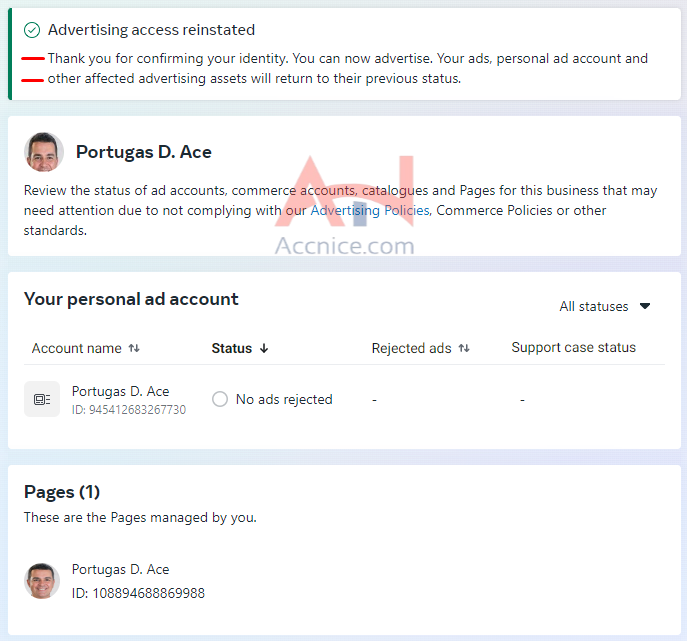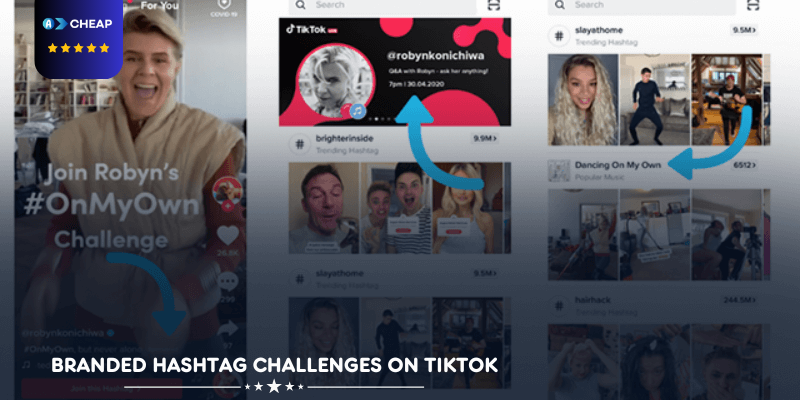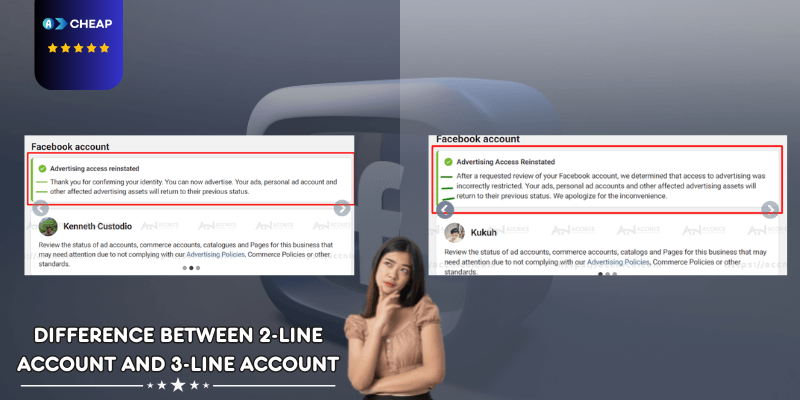Understanding the Differences: Identity Verification Accounts vs. Resistance 902 Accounts on Facebook
Author: Admin
Post date: 2024-08-16 02:13:38
Understanding the Differences: Identity Verification Accounts vs. Resistance 902 Accounts on Facebook
Navigating through the various types of Facebook accounts can be complex, especially when it comes to advertising and account management. In this article of Accheap, we'll clarify the differences between Identity Verification Accounts (marked by two green lines) and Resistance 902 Accounts (marked by three green lines).
-----------------------------------
1. Identity Verification Account - Two Green Line Account
This type of account has received Facebook's nod of trustworthiness with two blue checks, signifying restored ad capabilities through specific verification methods.
Verification Process
ID Verification: You can verify your identity by uploading an ID card or a citizen identification document.
License Verification: Alternatively, uploading a driver's license is also a viable verification method.


Benefits of Identity Verified Accounts:
Enhanced Trust: These accounts are deemed more credible for both ad running and general usage.
Faster Campaign Approval: Expect swifter campaign approvals compared to non-verified accounts.
Reduced Photo Checkpoints: There's a lower risk of encountering photo verification checkpoints (checkpoint 282).
2. Resistance 902 Account - Three Green Line
The 902 account type is associated with accounts that have faced error 902 due to policy violations or the use of compromised IP addresses for access. Successful appeals have reinstated these accounts.
Appeal Process for 902
Appeal Link: Submit your appeal through: https://business.facebook.com/help/contact/273898596750902
Account Quality Status: Post-appeal, the account quality can be verified at: https://www.facebook.com/accountquality/, where a three-line indicator will be displayed.

Strengths of 902 Accounts
Resilience: These are robust accounts, often utilized for holding Business Manager accounts or ones with high spending limits.
Lower FB Surveillance: Users can expect reduced scrutiny from Facebook, minimizing restrictions.
Premium Pricing: Due to the low success rate of appeals, 902 accounts often come at a higher price point.
Conclusion:
Both Identity Verified Accounts and Resistance 902 Accounts offer unique advantages for Facebook users, especially advertisers looking to maintain a healthy account status. Understanding the distinction between the two can help you select the right account for your business needs and investment capacity.









